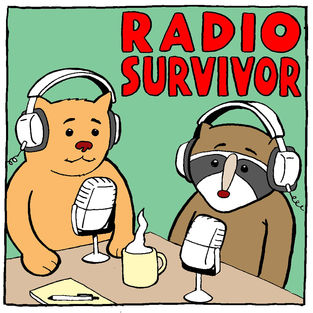
Radio Survivor Podcast
Radio Survivor
RS 147 Prison Radio And High School HD Radio - WEB Edit by Radio Survivor
- 1 hour 17 minutesPodcast #346 – The Fight for College Radio at Cleveland State Station WCSB

On October 3, 2025, while World College Radio Day was being celebrated all over the globe, Cleveland State University’s nearly 50-year old student-run college radio station WCSB 89.3 FM was shut down by administrators. Staff and volunteers were escorted out of the station by police and programming was soon replaced by JazzNEO, a music service produced by public radio group Ideastream.
In the ensuing weeks, WCSB participants and supporters have been protesting this move and have organized under the name XCSB. To discuss what happened to the Cleveland State college radio station and what lies ahead for XCSB, two former WCSB student leaders join us on Radio Survivor. Liam Main was the business manager of WCSB and Alison Bomgardner was the most recent General Manager of the station.
Show Notes:
- WCSB Student Leaders and Supporters Fight Against Takeover of Cleveland State University’s Student-Run Station (Radio Survivor)
- XCSB website
- Last capture of WCSB-FM website, when it was student-run station (Wayback Machine)
- Global College Radio Community Unites for XCSB Special Broadcast (College Radio Foundation)
- Ideastream Public Media website
- JazzNEO web page
- College Broadcasters Inc. website
- KUSF DJs and Fans Gear up to Fight Proposed Radio Station Sale (Radio Survivor, January 2011)
Show Credits:
- This episode was produced by Jennifer Waits
- Hosted by Jennifer Waits and Eric Klein
- Edited by Eric Klein
The post Podcast #346 – The Fight for College Radio at Cleveland State Station WCSB appeared first on Radio Survivor.
19 November 2025, 1:54 am - 59 minutes 1 secondPodcast #345 – Catching up with Community Radio at the Grassroots Radio Conference and NCRC

Jennifer Waits reports back from the Grassroots Radio Conference, held in Spokane Washington from September 11 to September 14, 2025. We recap FCC Commissioner Anna Gomez’s keynote address, in which she spoke forcefully about recent actions by the FCC that threaten freedom of speech and freedom of the press. Gomez talked about the importance of community radio, as a place that inherently provides a diversity of view points.
Also on the show, we hear a bit about the National Campus and Community Radio Conference, which was held in Nanaimo, BC, Canada in June 2025. Plus, Jennifer digs into the latest “best college radio stations” list from Princeton Review.
Show Notes:
- Grassroots Radio Conference 2025, hosted by KYRS in Spokane, Washington
- KYRS, Thin Air Community Radio
- FCC Commissioner Anna Gomez
- Gomez Sounds Alarm on Press Freedoms at Grassroots Radio Conference (Radio World)
- Podcast #267 – Live from the Grassroots Radio Conference: Community Radio and Protests (October 2020 virtual GRC)
- Podcast #162 – The Future of Community Radio, Live from Grassroots Radio Conference (October 2018 in Portland, Oregon)
- National Campus and Community Radio Association (NCRA) Conference in Nanaimo, BC, Canada
- Counterculture: 20 Years of CIVL Radio in the Fraser Valley documentary
- 35000 Watts documentary about college radio
- Campus and community radio stations that Jennifer visited in Canada (tour reports forthcoming): Radio Sidney, CFUV-FM (University of Victoria), CHLY-FM (Vancouver Island University), Vancouver Co-Op Radio CFRO-FM, CiVL-FM (University of the Fraser Valley), CJSF-FM (Simon Fraser University), CiTR-FM (University of British Columbia)
- Nadwuar the Human Serviette
- On podcast #304, Lesbian Radio History in Canada, Stacey Copeland references some programming on Vancouver Co-Op Radio
- On podcast #330, Wetland Project and Slow Radio, we also discuss the Soundscape Collective at Vancouver Co-Op Radio
- 2026 “Best College Radio Stations” List from Princeton Review (Radio Survivor)
Show Credits:
- This episode was produced by Jennifer Waits
- Hosted by Jennifer Waits and Eric Klein
- Edited by Eric Klein
The post Podcast #345 – Catching up with Community Radio at the Grassroots Radio Conference and NCRC appeared first on Radio Survivor.
24 September 2025, 2:21 am - 1 hour 32 minutesPodcast #344 – Music in Orbit: Satellite Radio in the Streaming Space Age
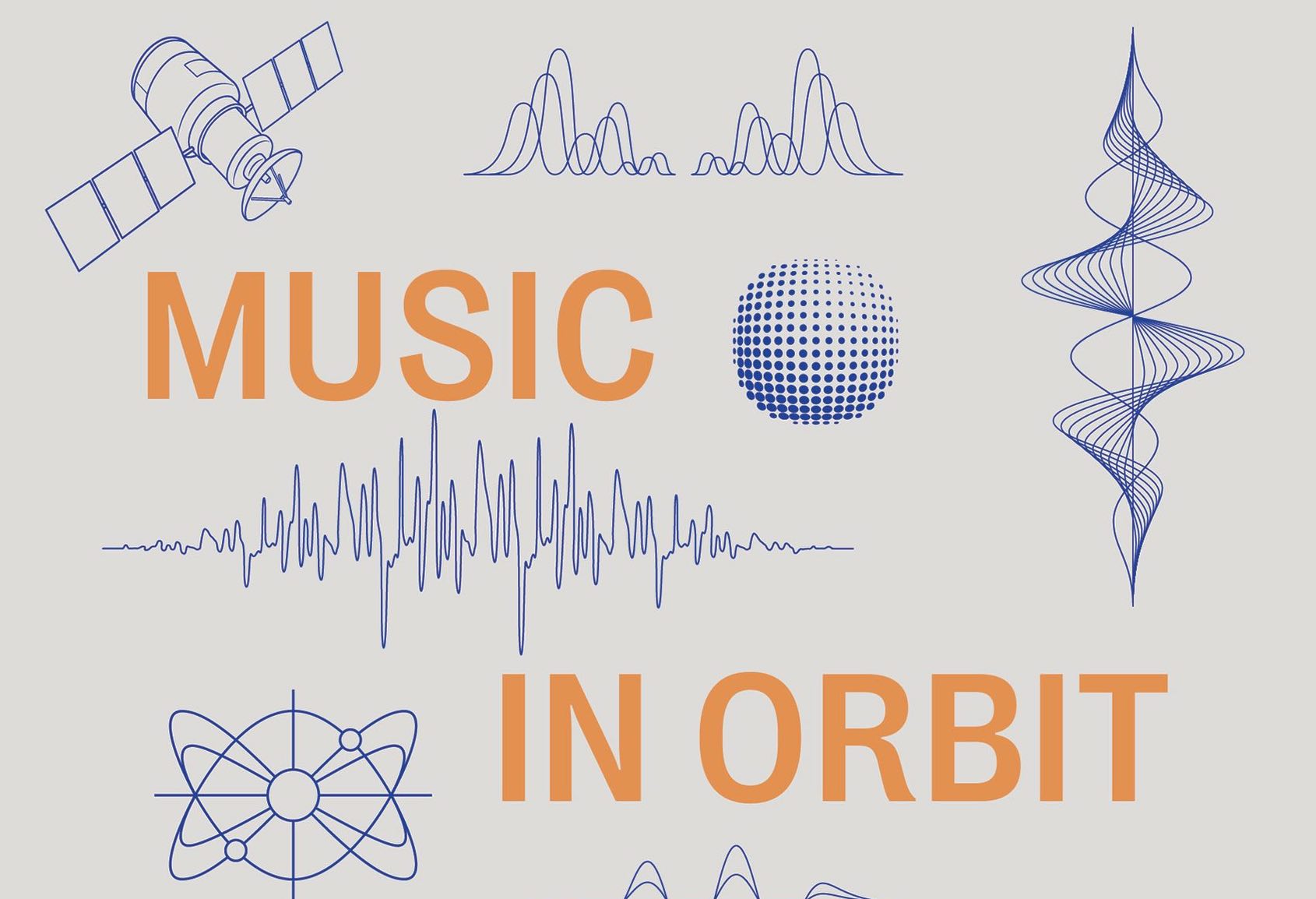
While the work of radio stations using terrestrial transmitters is a typical discussion topic on Radio Survivor, for this episode we find ourselves examining music and talk beamed down from satellites orbiting the earth. Satellite radio as we know it began in the 1990s, with its major players launching satellite radio services in the early 2000s. Brian Fauteux, Associate Professor of Popular Music and Media Studies at University of Alberta joins us on the show to discuss the fascinating history and relevance of satellite radio to both radio culture and the music industry. Brian is the author of the new book, “Music in Orbit: Satellite Radio in the Streaming Space Age,” released in 2025.
Show Notes:
- Music in Orbit: Satellite Radio in the Streaming Space Age (UC Press)
- Brian Fauteux
- SiriusXM
- HBCU channel on SiriusXM
- Aquarium Drunkard
- Sirius XMU
- Behind the Scenes of XMU’s “Student Exchange Program” (SpinningIndie)
- Matthew Lasar on “Radio 2.0” (Radio Survivor)
- Radio 2.0: Uploading the First Broadcast Medium by Matthew Lasar
- Flashback Radio Survivor articles by Brian Fauteux circa 2014-2016! (Radio Survivor)
Show Credits:
- This episode was produced by Jennifer Waits
- Hosted by Jennifer Waits and Eric Klein
- Edited by Eric Klein
The post Podcast #344 – Music in Orbit: Satellite Radio in the Streaming Space Age appeared first on Radio Survivor.
14 May 2025, 3:25 am - 1 hour 16 minutesPodcast #343 – Catching up on College Radio and Podcasting News (March 19, 2025)
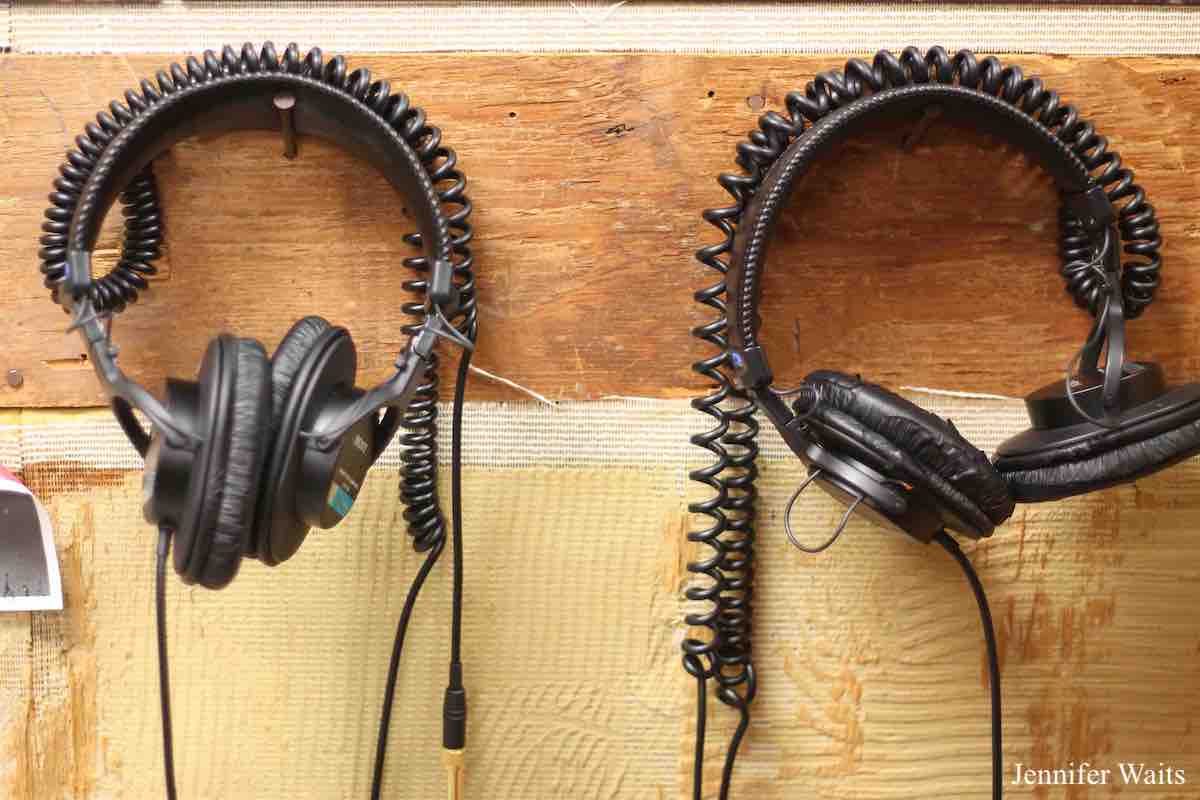
Eric, Jennifer and Paul return with a new episode of Radio Survivor, recapping some of the latest news from our travels. Jennifer shares highlights from the annual student media conference hosted by Intercollegiate Broadcasting System (IBS) and from her visits to college radio stations in New York City. Just back from South by Southwest, Paul lends perspective on some of the latest trends in podcasting. Additionally, we provide details about an opportunity for radio stations to broadcast the Wetland Project‘s annual Earth Day 24-hour slow radio event, featuring the sounds of nature. If you are interested in airing all or part of the broadcast, the organizers can be reached at INFO at WETLANDPROJECT dot com.
Show Notes:
- Wetland Project
- Wetland Project artists Brady Marks and Mark Timmings were our guests on episode 333 in 2023
- IBSNYC25 conference hosted by Intercollegiate Broadcasting System (IBS)
- Jennifer’s IBS conference reports from 2009 on Spinning Indie
- Paul’s report on the 2012 regional IBS conference in Chicago
- Digital Library of Amateur Radio and Communications (DLARC)
- Radio Survivor episode #335 about DLARC with guest Kay Savetz
- IBS collection in DLARC
- DLARC College Radio collection + December 2024 blog update about the project
- SXSW website
- Vox Media Podcast Stage at SXSW
- Sounds Profitable
- SXSW Radio Day Stage, with performances presented by various radio stations, including KCRW, KEXP, BBC Introducing, NPR Live Sessions, and Austin community radio station KOOP
- KUTX is the University of Texas-owned music radio station launched by NPR station KUT
- Douglas Rushkoff’s website
- iHeart Podcast Awards
- On Air Fest website
- College radio station WKCR at Columbia University + Jennifer’s 2017 station tour report
- College radio station WNYU at New York University + Jennifer’s 2008 station tour report
- Columbia University Amateur Radio Club
Show Credits:
Edited by Eric Klein
This episode was produced by Jennifer Waits
Hosted by Paul Riismandel, Eric Klein and Jennifer Waits
The post Podcast #343 – Catching up on College Radio and Podcasting News (March 19, 2025) appeared first on Radio Survivor.
19 March 2025, 6:40 pm - 58 minutes 54 secondsPodcast: Remembering Alice Brock of Alice’s Restaurant

Several years ago, Radio Survivor had the pleasure of speaking with artist and restaurateur Alice Brock, the woman who provided much inspiration for Arlo Guthrie’s inadvertent Thanksgiving Day radio staple, “Alice’s Restaurant.” Sadly, Alice Brock passed away on November 21, 2024 at the age of 83, just a week before the classic rock radio airwaves will be blanketed with the song that made her famous.
This year, in honor of Alice, we are presenting the Radio Survivor episode that we recorded with her in advance of Thanksgiving 2020, which was the most unusual of holidays, as the COVID-19 pandemic kept many of us separated from friends and family. During our discussion, Alice Brock shares with us not only some insight into the 18-minute anti-war epic “Alice’s Restaurant”; but also stories about her life and holiday traditions. For 2020, Brock was inspired to create a special introductory message for radio stations to play in advance of “Alice’s Restaurant,” and she explains why she was moved to offer up these words of thanks during that pandemic year in particular.
As we approach another holiday, our thoughts go out to Alice Brock’s friends and family. We are so grateful to have had the chance to chat with Alice and share Thanksgiving 2020 with her through the magic of podcasting.
Show Notes:
- Thanksgiving Radio Tradition withstands the Pandemic as “Alice’s Restaurant” Hits the 2020 Airwaves
- Alice’s Restaurant on the Radio Thanksgiving 2024
- Radio Survivor posts documenting where to hear “Alice’s Restaurant” on the radio
- Alice Brock’s Message for Radio Stations (NFCB)
- Alice Brock’s website
Show Credits:
- This episode was produced by Jennifer Waits
- Hosted by Jennifer Waits, Eric Klein, and Paul Riismandel
- Edited by Eric Klein
The post Podcast: Remembering Alice Brock of Alice’s Restaurant appeared first on Radio Survivor.
27 November 2024, 6:09 pm - 1 hour 22 minutesPodcast #342 – The Famous Computer Cafe
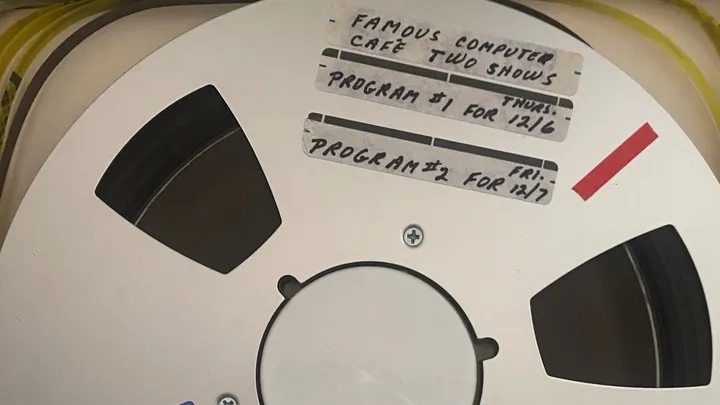
We travel back to the 1980s, when the show, The Famous Computer Cafe, initially launched over the radio in southern California. With a focus on home computers, computer news, and more, the program had a fascinating roster of guests, including Timothy Leary, Donny Osmond, Bill Gates, and so many others. Although it was assumed that all the recordings of the show were lost; recently 53 episodes were found and digitized. Computer historian and archivist Kay Savetz spearheaded this project and joins us on Radio Survivor, alongside one of the creators and hosts of The Famous Computer Cafe, Ellen Fields.
Show Notes:
- Listen to The Famous Computer Cafe on Archive.org
- The Famous Computer Cafe ads and ephemera on Archive.org
- Interviews with The Famous Computer Cafe founders on ANTIC: The Atari 8-bit Podcast
- Digitizing “The Famous Computer Cafe” Radio Show (GoFundMe)
- The PBS television show The Computer Chronicles (Wikipedia)
- Episode of “The Famous Computer Cafe” that mentions computer ads (at about the 4 minute mark) in New York taxi cabs
- Timothy Leary episode of “The Famous Computer Cafe”
- COMDEX was a computer trade show in Las Vegas from 1979 to 2003 (Wikipedia)
- “Resurfacing Women’s Contributions in Podcasting History” (Radio Survivor #135)
- The Famous Computer Cafe collection at Stanford University Libraries
Show Credits:
- This episode was produced by Jennifer Waits
- Hosted by Jennifer Waits and Eric Klein
- Edited by Eric Klein
The post Podcast #342 – The Famous Computer Cafe appeared first on Radio Survivor.
14 August 2024, 12:59 am - 1 hour 14 minutesPodcast #341 – The Distorted History of the Cassette Tape
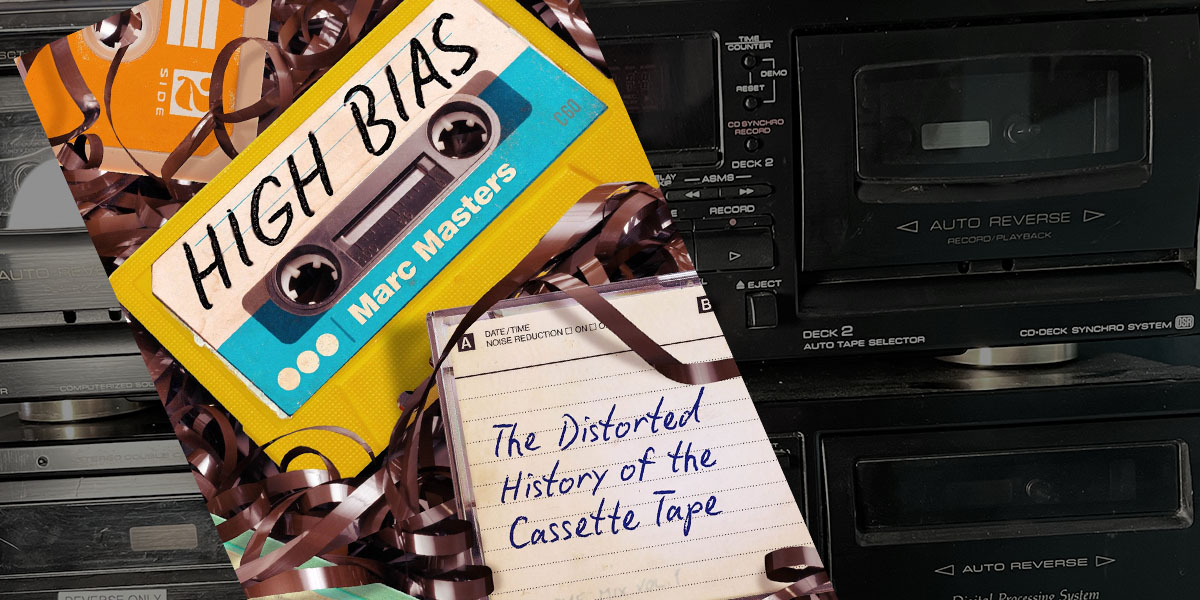
Journalist Marc Masters joins us to discuss his book, High Bias: the Distorted History of the Cassette Tape. We dive into how the oft-maligned cassette influenced the music industry and our culture by inspiring musicians, taking music to the streets and returning power back to listeners.
Show Notes
- High Bias: The Distorted History of the Cassette Tape at UNC Press
- High Bias: Music from the Book
- The Music Book Podcast
- The Spindle: A Podcast About 7-inch Records
- Minoy
- Shrimper Records and Tapes
- Aaron Dilloway
- Howard Steltzer
- The Daily Ping: The Personics System
Show Credits:
- This episode was produced by Paul Riismandel
- Hosted by Jennifer Waits and Paul Riismandel
- Edited by Eric Klein
The post Podcast #341 – The Distorted History of the Cassette Tape appeared first on Radio Survivor.
15 May 2024, 3:30 am - 1 hour 52 minutesPodcast #340 – College Radio History at Williams College
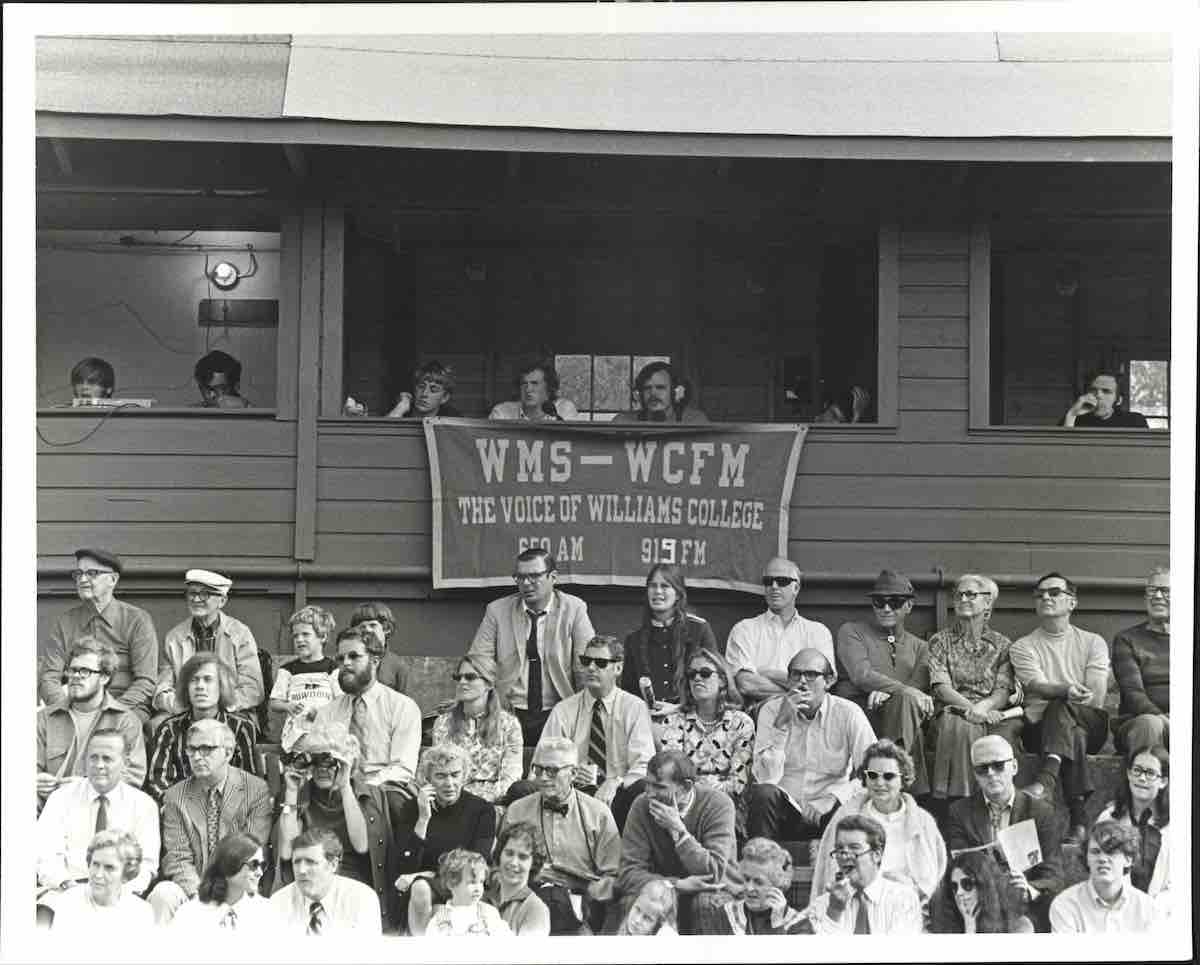
Williams College student Josh Picoult arrived on campus with a fascination for both history and radio. Four years later, he’s about to graduate after completing his undergraduate thesis on the history of college radio station WCFM, where he’s also the general manager. On this edition of Radio Survivor, we are joined by Josh, who talks us through some of the big ideas from his thesis: Gas Pipes, Gigahertz, and Grunge: Broadcasting at Williams College, 1940-1998. Josh also shares details about the current state of radio on campus.
Show Notes:
- Williams College radio station WCFM 91.9 FM in Williamstown, Massachusetts
- Podcast #89 – How to Preserve Radio History (guest Laura Schnitker)
- Podcast #158 – Surveying Community Radio’s Deep Archives (guest Laura Schnitker)
- Jennifer’s radio station tours
- Radio Station Field Trip #100 – WPRB at Princeton University
Show Credits:
- This episode was produced by Jennifer Waits
- Hosted by Jennifer Waits, Eric Klein and Paul Riismandel
- Edited by Eric Klein
The post Podcast #340 – College Radio History at Williams College appeared first on Radio Survivor.
1 May 2024, 2:22 am - 59 minutesPodcast #339- 75 Years of Listener Supported Radio
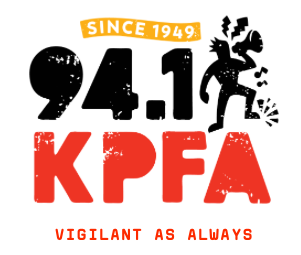
Matthew Lasar talks with Brian Edwards-Tiekert, host of KPFA’s Upfront to commemorate the Birthday of Pacifica Radio.
The post Podcast #339- 75 Years of Listener Supported Radio appeared first on Radio Survivor.
17 April 2024, 12:04 am - 1 hour 21 minutesPodcast #338 – YouTube, Video and Podcasting
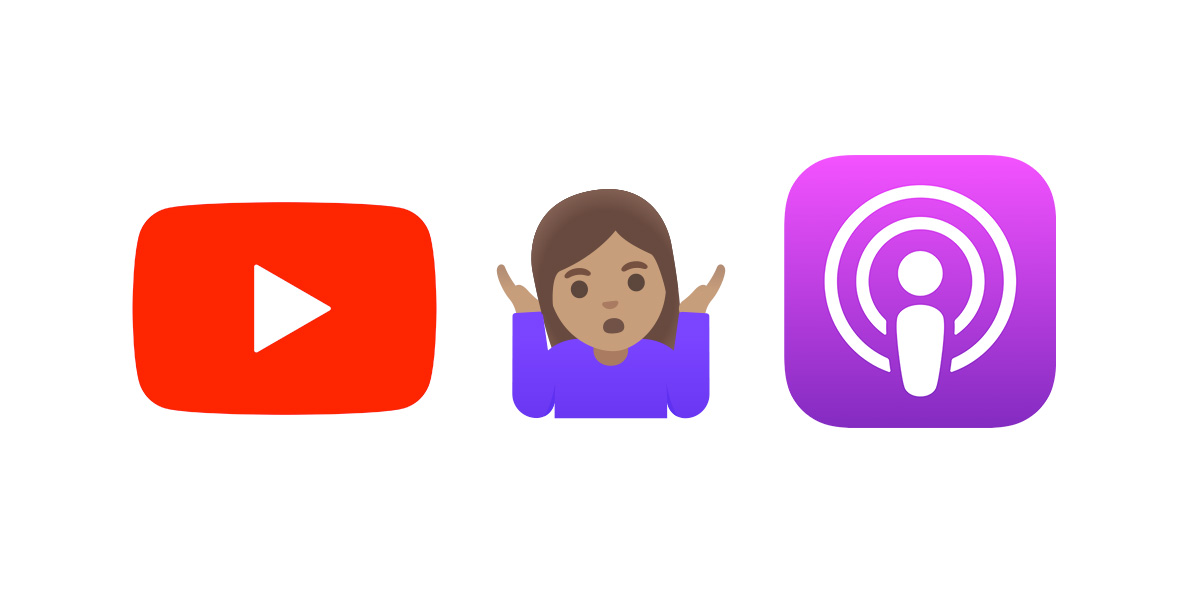
In the last few years YouTube has become one of the most popular platforms for consuming podcasts, even though it’s a primarily a video platform, and podcasts have traditionally been an audio-first medium. This fact has raised both questions and concerns with podcasters. Paul has worked on research studies intended to better understand why and how people use YouTube to consume podcasts. He shares that data along with analyses and thoughts on how podcasters might think about YouTube and video.
Show Notes:
- Sounds Profitable’s Sound You Can See study
- The Download on Podcasts, Fall 2023
- YouTube and Video Will Grow Podcasting in 2024
- Podcasting on YouTube
Show Credits:
- This episode was produced by Paul Riismandel
- Hosted by Jennifer Waits, Eric Klein and Paul Riismandel
- Edited by Eric Klein
The post Podcast #338 – YouTube, Video and Podcasting appeared first on Radio Survivor.
10 April 2024, 7:04 am - 59 minutesPodcast #337 – Catching up on Radio News including LPFM, a College Radio Archive, Documentaries, and More
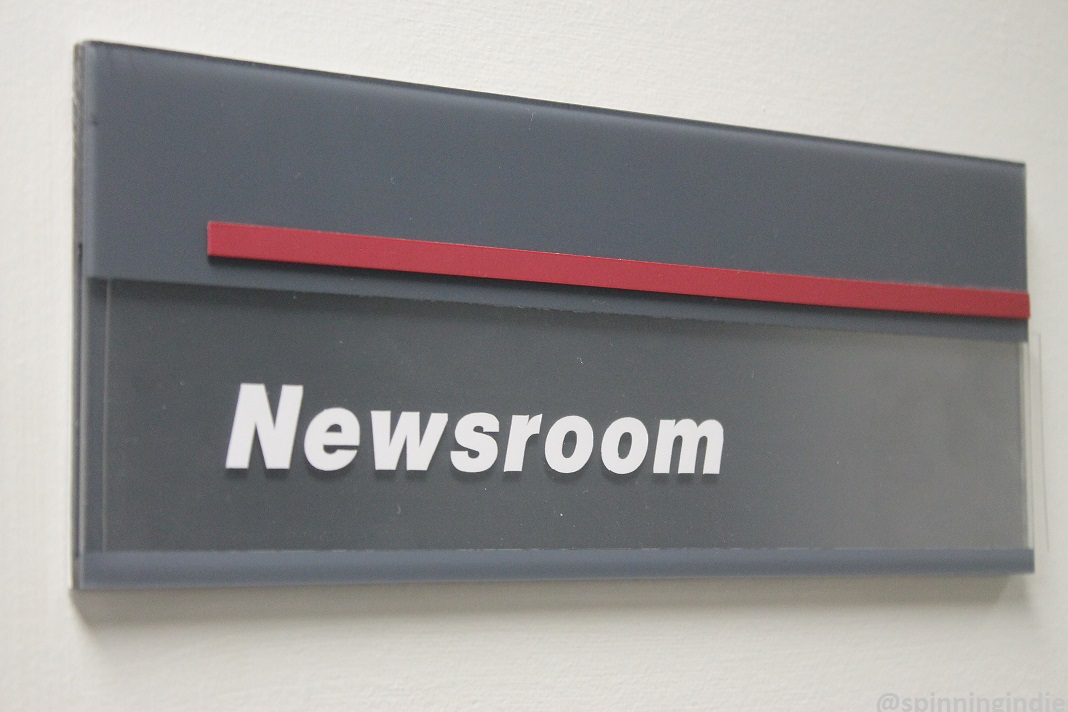
The Radio Survivor team returns for a new episode, during which Jennifer, Eric and Paul recap some of the latest radio news. Topics this week including LPFM, college radio history, radio documentaries, expanding and returning radio stations, and a slow radio broadcast for Earth Day.
Jennifer talks about her new gig working on a college radio history collection that is part of the Digital Library of Amateur Radio and Communications (DLARC) on the Internet Archive.
Additionally, we cover some updates to the radio landscape, including details about the most recent low-power FM licensing window, during which 388 groups (and counting) have been awarded construction permits for new LPFM stations. In San Francisco, streaming radio station BFF.fm is the recipient of one of these coveted spots on the dial.
Also coming to the San Francisco airwaves is Seattle-based non-commercial radio station KEXP, which acquired the former KREV full-power FM commercial frequency in a bankruptcy auction. Across the country in New York City, streaming community radio station East Village Radio is returning after it ceased operations nearly a decade ago.
A few radio stories are coming to the big screen. 35,000 Watts, a documentary about college radio, has made its debut and is initially hitting the college radio circuit. Jennifer will be in attendance at a 35,000 Watts screening and panel discussion at Pomona College on March 28th as part of a fundraising event for college radio station KSPC. Another radio film in the works, 40 Watts to Nowhere, recounts the story of pirate radio station KBLT, which ran out of founder Sue Carpenter’s home in Silver Lake near Los Angeles in the late 1990s.
Finally, we alert stations to an opportunity to participate in the annual Earth Day radio event: Wetland Project Slow Radio Broadcast on April 22, 2024. Stations can air all or part of the 24-hour broadcast featuring the sounds of nature, including birds, frogs, insects, and airplanes.
Show Notes:
- Podcast #335 – Digital Library of Amateur Radio and Communications (DLARC)
- DLARC on the Internet Archive
- College Radio Collection on DLARC
- Website for the college radio documentary 35,000 Watts
- 35,000 Watts screening dates
- Pomona College radio station KSPC-FM website (and see Jennifer’s tour of KSPC)
- BFF.fm on LPFM (Bff.fm)
- Jennifer’s tour of BFF.fm
- KEXP Coming Soon to the Bay Area (KEXP)
- Jennifer’s tour of KEXP in Seattle
- East Village Radio website
- Here is Why NYC’s Iconic East Village Radio is Coming Back from the Dead after a Decade (NY Post)
- Jennifer’s 2008 tour of East Village Radio
- Granted LPFM Applications for 2023 Filing Window (REC Networks)
- 40 Watts from Nowhere Documentary Kickstarter
- 40 Watts from Nowhere: A Journey into Pirate Radio book by Sue Carpenter (Amazon)
- Podcast #330 – Wetland Project and Slow Radio
- Wetland Project website
Show Credits:
- This episode was produced by Jennifer Waits
- Hosted by Jennifer Waits, Eric Klein and Paul Riismandel
- Edited by Eric Klein
The post Podcast #337 – Catching up on Radio News including LPFM, a College Radio Archive, Documentaries, and More appeared first on Radio Survivor.
20 March 2024, 1:33 am - More Episodes? Get the App